
They say every rose has its thorn, so it makes sense that with all of the technology we have at our fingertips, cybercrime would be at an all-time high. Identity thieves will do whatever they can to get their hands on your personal information, including your social security number, bank account details, and credit card digits. Most of the time, victims of identity theft don’t know they are victims until it’s too late—and some may not know how to report identity theft in the first place. (Learn about Google’s new tool that alerts you when your private information is shared online). Keep an eye out for these red flags to catch a thief before the repercussions get out of control. Then look into identity theft protection services and explore the most common online scams and how to avoid them.
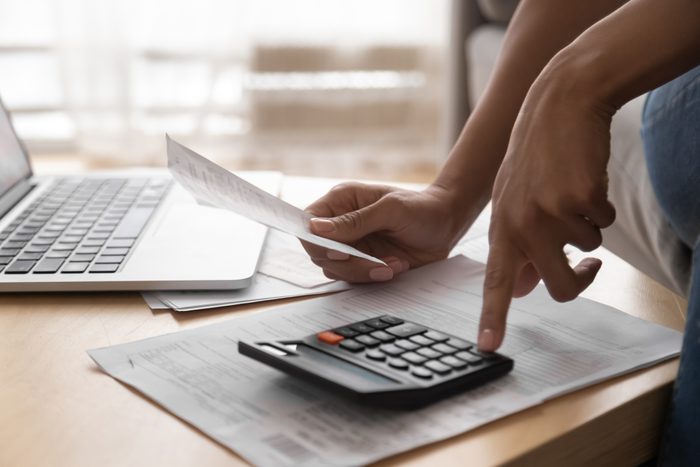
You see errors on your credit report
Pro tip: Each year, you can request a free credit report from any of the three major bureaus (Experian, Equifax, and TransUnion). Experts recommend taking advantage of this perk every four months to check for anything suspicious, such as unfamiliar accounts or credit inquiries. If you notice an error, contact the credit bureaus ASAP. “Ask them to investigate and remove any false information on your credit report,” says Steven J.J. Weisman, a professor at Bentley University and author of Identity Theft Alert. “This is critical to protecting your credit score going forward.” By the way, these are the top things to never keep in your wallet if you want to keep your identity safe.
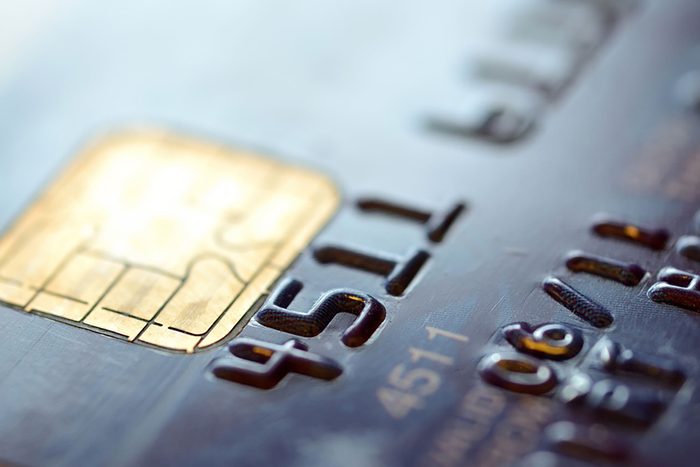
You notice unexplained charges on your credit card
You don’t have to lose your wallet for thieves to steal your credit card info. If you log into sensitive accounts or enter your credit card number while on public Wi-Fi, hackers can gain access to your information, according to Eva Velasquez, president and CEO of Identity Theft Resource Center. Contact your creditor to report the fraud and have the charges removed; then get new credit card numbers as soon as possible. These are the times you should never use a credit card.

You receive calls from debt collectors
Phone calls requesting overdue payments could be a sign that an identity thief is running up a tab at your expense. But before you rush to close your bank accounts, keep in mind that every instance of identity theft is different. Velasquez recommends using the Identity Theft Resource Center’s toll-free hotline or online LiveChat, where an advisor can help you form the best plan of action. Beware of other phone call scams that could steal your money.

You get a two-factor authentication alert
When hackers dig around in your online accounts, they could accidentally trigger an authentication alert. You can easily keep cybercriminals away by strengthening your passwords. “Consider putting together four random words and adding a number, at least one lowercase, and a special character,” says Theresa Payton, CEO of the cybersecurity firm Fortalice and coauthor of Protecting Your Internet Identity. A password like “CozyChairFireBook2020!” would be tough for a scammer to crack. By the way, these are the passwords hackers will guess first.
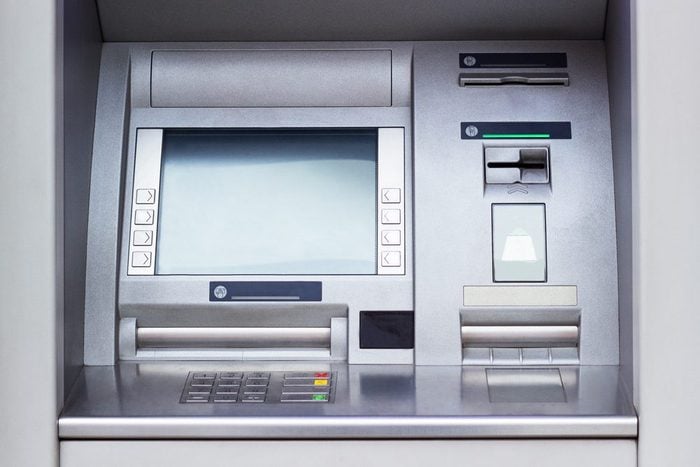
You notice unauthorized withdrawals from your bank account
It’s always a good idea to keep a close eye on withdrawals from your bank account—no matter how small. Hackers might withdraw a couple of bucks to test if the charge goes through. As soon as you notice any unfamiliar charges, contact your credit card company and ask them to freeze your credit. “This prevents [the] opening of any new lines of credit, making you a tougher target,” says Robert Siciliano, a security analyst for Hotspot Shield. Identity thieves will quickly move on. Learn about the cybersecurity secrets hackers don’t want you to know.

You start getting bills for unfamiliar expenses
Don’t ignore or toss any unusual bills that appear in your mailbox. It might not be innocent spam mail; bills or notices for overdue payments could mean trouble with identity fraud, experts say. In this case, you should file a police report right away. “They probably will not catch the criminal, but it puts you on record as having reported the identity theft and can help in repairing your credit,” Weisman says. Make sure you are always shopping on a real site and look out for these signs that a shopping site is fake.
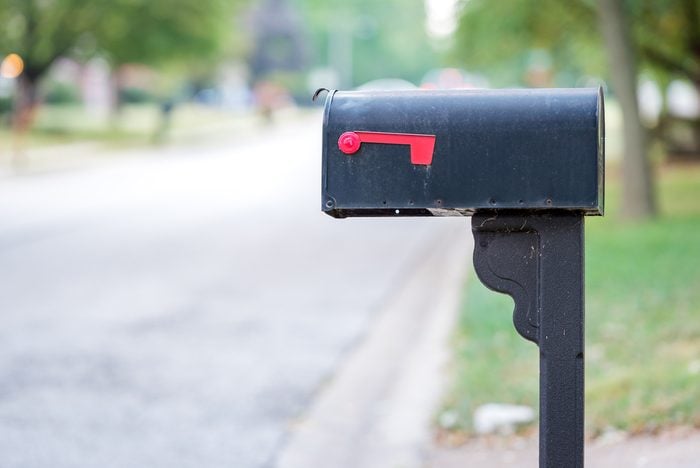
You stop receiving mail or emails
Just as receiving odd bills can be a sign of identity theft, not receiving mail or emails related to expenses is a red flag. This is especially true for items that you receive on a regular basis, like bank statements and bills. An identity thief only needs your name and address to reroute your mail and intercept sensitive documents, so make sure to follow up with creditors if your bills don’t arrive on time. This is a reason to shred documents that have your personal information on them
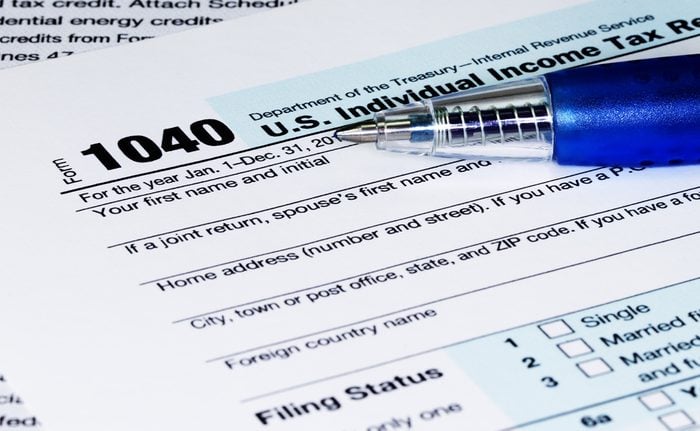
You are told that you filed more than one tax return
Strange, but true: Identity thieves can file a tax return in your name, claiming a phony refund and hoping to swipe it from your mailbox. Being rejected for an electronically filed tax return or receiving a tax refund you did not request are big red flags that your identity has been stolen. If this happens to you, Weisman recommends contacting the IRS as soon as possible to report the fraud. Also, use caution when answering a phone call from these area codes.

You receive mail addressed to a different name
If you start getting mail addressed to people who don’t live with you, you should take it seriously. Mistakes happen, but it can’t hurt to freeze your credit in case it ends up being identity fraud. “Everyone should do this, regardless of whether they are a victim of identity theft or not,” Weisman says. “It is the single best thing you can do to protect yourself from becoming a victim of identity theft.” Don’t miss these tech myths you need to stop believing.
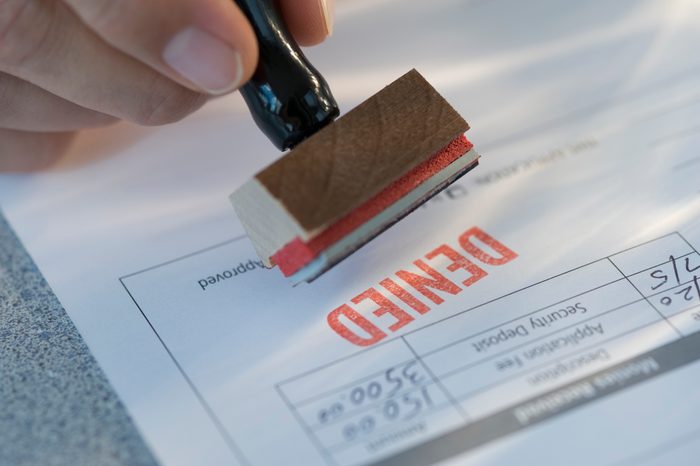
You are rejected for insurance claims or credit applications
Let’s say your application for credit is denied, but you have a good credit score. Or your medical insurer rejects a claim even though you know it was legitimate. Weisman says identity thieves might be taking out loans or making fraudulent claims with your information. He recommends reaching out to your medical provider or credit card company to confirm and report the fraud. Don’t forget to read up on these common Venmo scams.

You are sent advertisements for expensive items
Ads for flashy vehicles or unfamiliar health care services could be signs of fraudulent activity on your account, according to Payton. Scammers often charge big-ticket expenses to victims’ credit cards, which results in more direct mail and phone solicitations for those items. If you think thieves have access to your credit information, especially if your wallet has been stolen, do these things ASAP to stop identity theft.
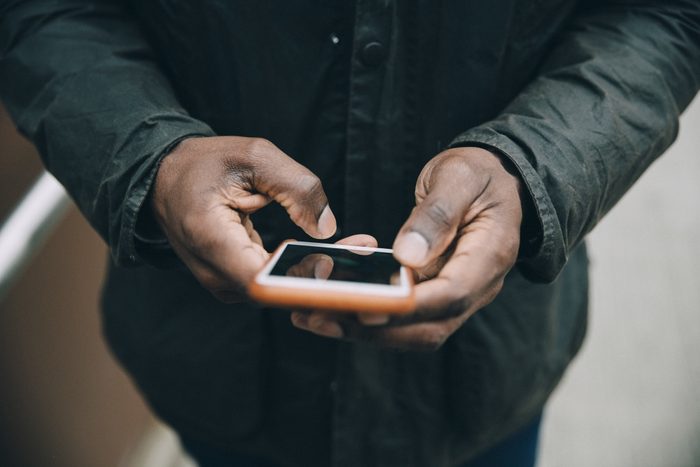
You are notified that your information has been compromised
Believe it or not, your employer might be one of the first to know if your information has been stolen. An identity thief with your Social Security number and the name of your current employer might try to collect unemployment benefits in your name. Eventually, your employer or an unemployment agency will notice and let you know that something seems fishy. To protect yourself against fraud, avoid giving out your Social Security number unnecessarily. Next, be on the lookout for these Apple ID phishing scams.

You receive statements for credit cards you don’t have
Receiving statements for credit cards you never signed up for that are full of charges you don’t recall and getting receipts for purchases you never made are major signs that someone has stolen your information. Identity thieves may use your information to make purchases in your name, upgrade existing accounts, or open new accounts. Unfortunately, you may not find this out until you receive the bill in the mail.

Your cell phone loses service
If you lose service for an extended period of time in a place where you would normally have service, you should review your account for abnormal activity. If an identity thief upgrades a phone on your account, your device could lose service because it has been transferred to a new phone. You will want to promptly reach out to your wireless provider, as you may still be responsible for paying for the new device. Look out for these signs your computer has been hacked.

Your medical claim is denied
If your medical claim is rejected because you have reached your benefits limit or you receive a bill for an examination you didn’t receive, someone could be using your information. An identity thief could use your information during a health crisis, which could lead you to have someone else’s medical history in your personal health records and can negatively affect your eligibility for benefits. While this will be harmful to your wallet, it could also be harmful to your health, such as if a future doctor prescribes the wrong medication based on incorrect records. Next, protect yourself from scammers by following some online rules.
Sources:
- Steven J.J. Weisman, professor at Bentley University and author of Identity Theft Alert
- Eva Velasquez, president and CEO of Identity Theft Resource Center
- Theresa Payton, CEO of cybersecurity firm Fortalice and coauthor of Protecting Your Internet Identity
- Robert Siciliano, security analyst for Hotspot Shield
